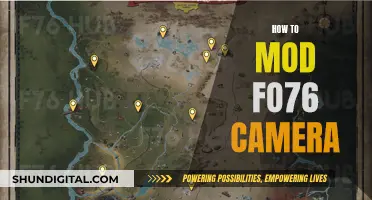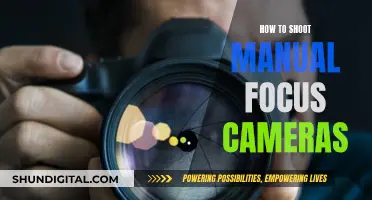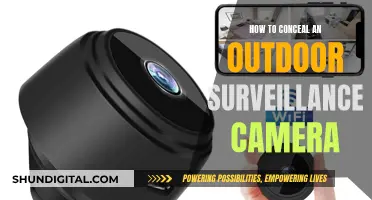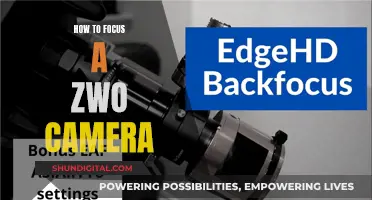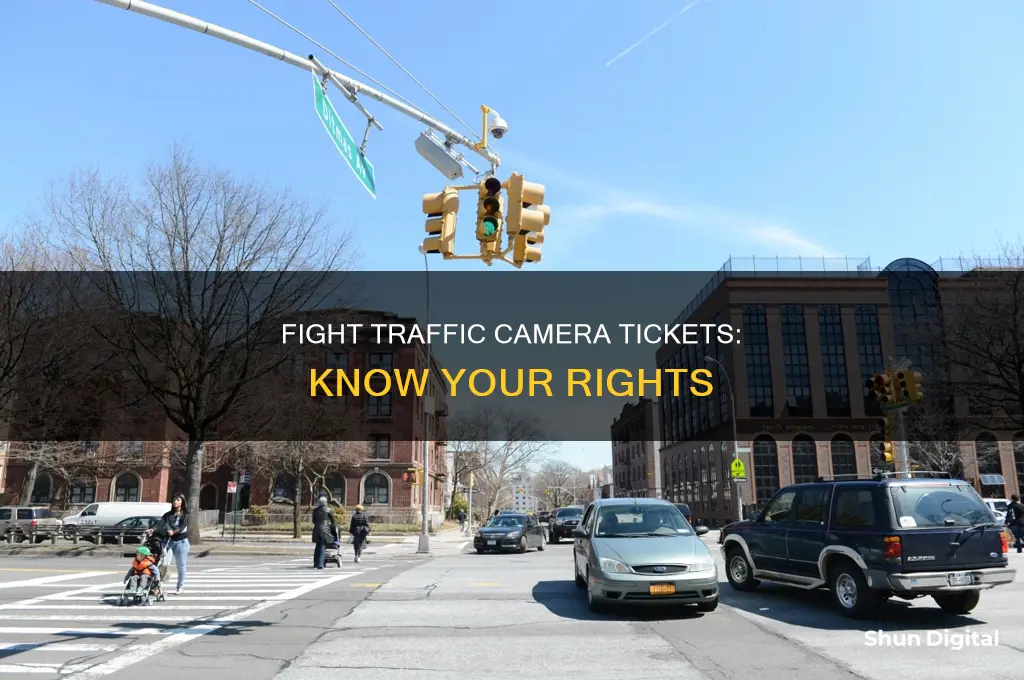
If you've received a traffic ticket, you may be able to dispute it. The first step is to check the details of the ticket, including the date, time, and location, and confirm whether you were driving the car at the time. You should also review any included photos to ensure that your car is clearly identifiable. If you intend to dispute the ticket, you must plead not guilty by the deadline, which is typically within 30 days of receiving the ticket. You can do this by mail, online, or in person, depending on the jurisdiction. You will then need to build a legal defense, which may include researching relevant laws and precedents in your area. For example, you may be able to argue that warning signs were obscured or that you were driving out of necessity to avoid harm. When you appear in court, present your evidence and argue your case.
| Characteristics | Values |
|---|---|
| Ticket review | Check date, time, location, and driver of the car |
| Plead not guilty | Plead by mail, online, or in court |
| Arraignment | Appear at the first hearing |
| Hearing | Request a formal hearing and gather evidence |
| Evidence | Request documents, photos, and videos from the police |
| Research | Look for cases and laws in your city or county |
| Defence | Dispute authenticity, argue lack of evidence, or raise other defences |
What You'll Learn

Check the ticket details and photos
When you receive a traffic ticket, it is important to carefully examine the ticket details and any accompanying photos. This is the first step in determining whether you have grounds to dispute the ticket. Here are some key things to look for when reviewing the ticket and photos:
- Date, time, and location: Confirm that the date, time, and location recorded on the ticket match the details of your alleged offence. This information is crucial, especially if you believe you were not at the specified location at the time of the violation.
- Vehicle information: Check that the ticket accurately identifies your vehicle, including the license plate number and vehicle description. Mistakes in this section could provide grounds for disputing the ticket.
- Violation details: Note the specific code section you are cited for violating. Look up the law to understand the elements of the violation and the associated penalties. Ensure that the penalties listed on your ticket, if any, match those specified in the code section.
- Photographic evidence: Carefully review any photos included with the ticket. Check if your vehicle is clearly identifiable. Look for details such as the legibility of your license plate and the clarity of the image. Blurry or inconclusive photos can be challenged as insufficient evidence.
- Driver identification: In some jurisdictions, traffic camera tickets are issued to the owner of the vehicle, regardless of who was driving. Determine whether your jurisdiction follows this approach or if they require identifying the actual driver. If the latter is the case, confirm that you were indeed the driver at the time of the violation.
- Legal requirements: Familiarize yourself with the legal requirements for traffic camera tickets in your area. For example, some jurisdictions may require clear warning signs posted near traffic cameras. If such signs were missing or obscured, this could be grounds for disputing the ticket.
Remember, it is your right to carefully scrutinize the details of the ticket and any accompanying photos. Don't rush through this process, as it forms the foundation of your decision to pay the fine or dispute the ticket. Taking the time to thoroughly review and understand the information can help you identify potential discrepancies or errors that may support your case during the dispute process.
Unveiling the Highest-Resolution Camera: Unmatched Clarity and Detail
You may want to see also

Plead not guilty
If you want to dispute a traffic camera ticket, you must plead not guilty. Here is a step-by-step guide on how to do this:
Step 1: Check Your Ticket
Check the date, time, and location of the ticket. Camera tickets are sent to the car owner, so make sure you were driving when the ticket was issued. The prosecutor must prove that you were driving at the location at the specified date and time. If someone else was driving your car, you cannot be prosecuted. However, in some states, like New York, the owner of the car is held liable for red-light camera tickets, similar to parking violations. Therefore, it is important to check the red-light law in the jurisdiction where you received the ticket.
Step 2: Review the Evidence
If your notification included photos or videos, review them to confirm that it is your car in the media and that the footage is clear. Blurry footage or an unclear license plate may serve as a defence. Additionally, if there is no clear footage of you in the driver's seat, the prosecution may not be able to prove that you were driving. If photos or videos were not included with your citation, you may need to wait until your trial is scheduled to request them from law enforcement.
Step 3: Understand the Law
Make a note of the exact code section you are cited for violating, and read up on the relevant law. Understand the elements of the violation and the associated penalties. Remember, it is the prosecution's burden to prove each element of your violation—you are not responsible for proving your innocence. Additionally, research the applicable law regarding traffic cameras in your city or county. Look for any cases or appellate court decisions that have ruled on the legality of traffic camera tickets, as this may provide you with further defences. For example, some states have specific rules about where warning signs must be posted for traffic cameras, and the absence of these signs could be used in your defence.
Step 4: Plead Not Guilty
You must plead not guilty if you want to dispute the ticket. You can usually do this by mail or online, especially for less serious violations like speeding or running a red light. Check your citation and ensure that you plead not guilty before the deadline, which is typically around 30 days. If you are unable to plead by mail or online, you will need to appear in traffic court for your arraignment. At the arraignment, plead not guilty and request a formal hearing or trial. This may require you to attend other hearings, such as pre-trial hearings or mediations, but do not accept anything less than a full dismissal of your ticket.
Step 5: Request Documents
After pleading not guilty, contact the local police department or law enforcement agency responsible for the camera that issued your citation. Request copies of any photos or videos if they were not included with your citation. Additionally, request full maintenance records for the camera and any associated equipment, such as traffic lights or speed monitoring systems. If this equipment was not regularly maintained or calibrated, the photo or video evidence may be deemed unreliable.
Bus Camera Tickets: How Many Were Issued?
You may want to see also

Research the law
Researching the law in your area is crucial if you want to build a strong legal defence against a traffic camera ticket. Here are some important points to consider:
- Applicable Laws and Precedents: Familiarise yourself with the specific laws related to traffic cameras and traffic violations in your city or county. Look for case precedents and appellate court decisions that have ruled on the legality of traffic camera tickets. Understanding the legal framework will help you identify any loopholes or defences that you can use.
- Warning Signs and Requirements: Some states have specific requirements regarding the placement of warning signs for traffic cameras. Research if your state has such requirements and whether they were properly followed. If the warning signs were obscured or not present, it could be a valid defence.
- Necessity Defence: Certain states recognise a necessity defence for speeding. This means that if you were speeding due to a compelling reason, such as rushing to the hospital, you may have a valid defence. However, be mindful that the defence should be based on legitimate and reasonable grounds.
- Registered Owner vs. Driver: In some jurisdictions, like New York, red-light camera tickets are treated as parking violations, holding the registered owner of the vehicle responsible. On the other hand, some places require the prosecution to prove that the driver was the registered owner of the vehicle. Understanding the specific laws in your area will help you determine the best course of action.
- Evidence and Admissibility: Learn about the rules of evidence and admissibility in your jurisdiction. For example, in some places, a red-light camera photo may be considered hearsay and might not be admissible as evidence. Understanding the rules of evidence can help you challenge the prosecution's case more effectively.
Troubleshooting Eufy Camera Charging Issues
You may want to see also

Argue the camera malfunctioned
Arguing that a camera malfunctioned is one of the most common defenses against a traffic camera ticket. Here are some steps you can take to dispute your ticket on these grounds:
- Check the ticket details: Confirm the date, time, and location of the ticket. Make sure that you were actually driving the car when the ticket was issued. In most states, it's the driver, not the owner of the car, who's liable for the violation.
- Review the photos: If your notification included photos, check if your car is clearly visible in the photo. If the license plate isn't clearly visible, it may be difficult to confirm that the car is yours. Also, check if there's a clearly identifiable photo of you in the driver's seat.
- Request maintenance records: Call the local police department or the law enforcement agency in charge of the camera and request full maintenance records for the camera and the traffic light or speed monitoring system. If the accuracy of the camera wasn't tested within a short period before your ticket was issued, the photo may be unreliable as evidence.
- Dispute the authenticity of the photograph: If no one from the company that maintains the camera shows up to testify, you can object to the use of the photographs for lack of foundation. The prosecution must present evidence that the camera, the system that connects it to the traffic light, and the traffic light itself were functioning properly.
Syncing Camera to Computer: Easy Steps to Follow
You may want to see also

Prove you weren't driving
If you want to dispute a traffic camera ticket on the grounds that you weren't driving, you must first examine your ticket. Check the date, time, and location, and confirm whether you were driving the car when the ticket was issued. In most states, it is the driver, not the owner of the car, who is liable for the violation.
If you were not driving, you can submit an affidavit swearing that you were not driving when the violation occurred, which will usually result in the dismissal of the ticket. You can also request sworn statements from witnesses who can confirm that you were not driving.
If you were driving, try to reconstruct the scene and write down any details you remember. For example, you may have been making a legal right turn on red when the camera took the photo. If you were making a legal manoeuvre, you should be able to get the ticket dismissed.
Remember, it is the prosecution's burden to prove each element of your violation – it's not your responsibility to prove that you weren't driving. If there is no clearly identifiable photo of you in the driver's seat, this may be a strong defence.
HDR Mode: Enhancing Your Mi Camera Experience
You may want to see also
Frequently asked questions
You can dispute a ticket if you believe it was issued unfairly, if you want to reduce the fine, or delay payment. You have 30 days to dispute a traffic ticket from the violation date.
You can submit your dispute online if the ticket includes charges under the Motor Vehicle Act or Motor Vehicle Act Regulations and was issued with the online dispute option. Alternatively, you can dispute your ticket by mail or in person within 30 days of the ticket date.
You will need to know the violation ticket number, the date it was issued, what it's for, the fine amount, and the violation date. You will also need to provide your full name, address, driver's license number, and date of birth.
Possible defences include arguing that you had no reasonable legal option other than to exceed the speed limit, or that your vehicle was stolen. You can also carefully examine the evidence against you and look for discrepancies.
It is highly recommended that you hire a lawyer to help you dispute a traffic camera ticket. They can guide you through the process and improve your chances of success.


